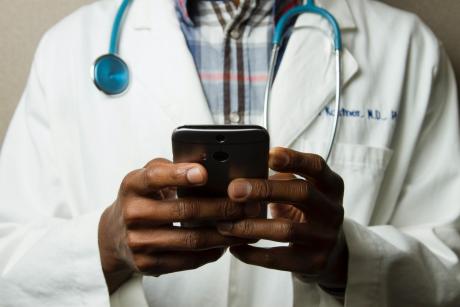Ventura County Sees Behavioral Health Benefits With VideoConferencing
The following post is an excerpt of a larger article written by Charlie Ban for County News, a print publication for the National Association of Counties. Read the full article here.
Three months into the COVID-19 pandemic, more than two million U.S. residents have seen the virus take root in their lungs, but a much larger share have felt it affect their minds.
Nearly one-third of Americans have been reporting signs of anxiety or depression since the pandemic began, according to the Household Pulse Survey by the National Center for Health Statistics and the Census Bureau.
Long-term, research by the Robert Graham Center for Policy Studies in Family Medicine and Primary Care and the Well Being Trust found that as many as 75,000 more people will die from drug or alcohol misuse and suicide throughout the decade if policymakers ignore the collateral damage from the pandemic as it affects Americans’ emotional well-being.
Effective mental health services have proven crucial to keeping people functioning while the country waits to return to a somewhat familiar life. As counties grapple with how best to provide mental health services, they are uncovering new challenges and also new adaptations that could pay off down the road.
Many counties report taking greater advantage of telehealth in assessing patients in distress, in addition to replacing in-person meetings with clients. They save time for both client and practitioner and limit exposure to the novel coronavirus.
“It’s magic,” said Sevet Johnson, behavioral health director for Ventura County, Calif. “We need to see their faces, have some interaction, see how they’re responding. But now we can see their faces, see their delays, their confusion, track their eye movement. That’s the kind of thing you would be able to do in person, and you get a good feel for what’s going on with them.”
Johnson said the efficiency presented by telehealth, which wasn’t really on her department’s menu before the crisis, has been productive.
“We can assess three people in three hospitals over the course of six hours,” she said. “Usually we have to drive back and forth and that takes most of the time. We might have been able to do 1.5 a day beforehand.”
She also reports that administrative work has been more efficient with the adoption of telework.
“We’re finding benefits in the midst of all of this chaos,” she said.
Videoconferencing has also helped bring in participants in Ventura County’s DUI treatment program, many of whom face transportation barriers to reach meetings.
“We’ve seen a significant increase in participation that we haven’t seen in years,” she said. “If they can just sign into Zoom and participate in their classes to get their licenses back, people are eager and they are showing up in unprecedented numbers.”
“I think staff are adapting well and our clients are too,” she said. “We’re finding while it’s different and it’s not something we really planned for, given the current stay-at-home orders and we can’t see most of our clients face-to-face like we routinely would, we found some great efficiencies and we found some great processes that we really would love to be able to use in the future.”
Mental health during COVID-19: What other counties are seeing and doing
- Though Solano County, Calif. adult wellness centers are now closed, the agency set up “buddy calls” so local residents can provide peer support to one another. Agency staff are also calling to check in and are delivering food.
- The San Diego County, Calif. suicide prevention and stigma reduction campaign began media messaging that directly addresses behavioral health impacts of COVID-19, including impacts of prolonged isolation.
- Coconino County, Ariz. Community Services will offer financial coaching classes via Zoom to help individuals prepare for a financial crisis.
- Arapahoe County, Colo. added a support line staffed by bilingual behavioral health experts.
- The DeKalb County, Ga. community services board/pharmacy services arranged for same-day delivery of medication refills to the homes for all clients using telehealth access.
- Cook County, Ill. created multidisciplinary behavioral health tactical teams that include psychiatrists, mental health Advanced Practice RNs, MAT (medication-assisted treatment) certified medical providers, psychologists and LCSWs to provide telehealth services to individuals experiencing homelessness and residing in shelters.
- Palm Beach County, Fla. implemented a strategy to ensure food distribution and services to seniors and other populations in partnership with community-based partners, faith-based community and local municipalities.
- Charlotte County, Fla. added a free hotline staffed with two therapists, dedicated toward those who are not currently in treatment, but are seeing an exacerbation of stressors like job loss or illness.












































